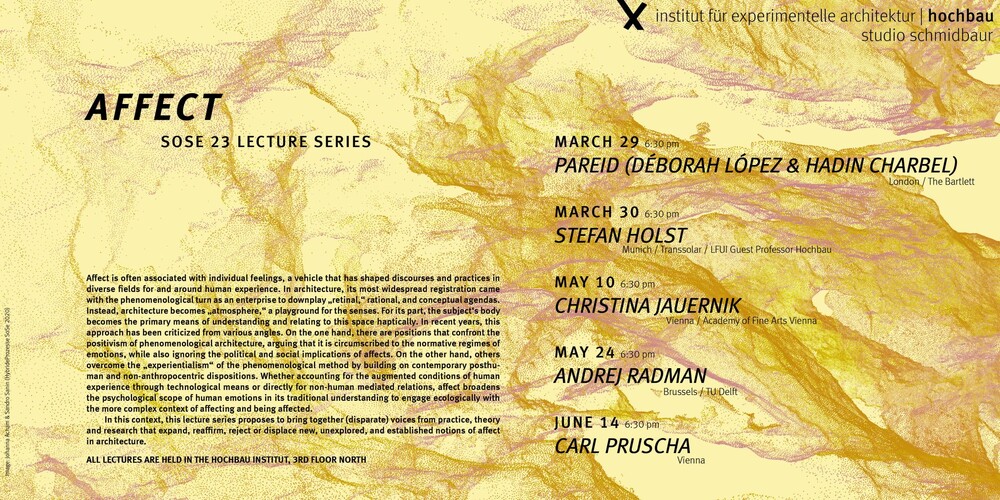
Stefan Holst is guest professor at the department of experimental architecture | building design and construction | innsbruck and will give a lecture on March 30, 6:30 pm as part of the summer lecture series 2023 AFFECT.
Lecture 1: March 29, 6:30 pm – PAREID
Lecture 2: March 30, 6:30 pm – Stefan Holst
Lecture 3: May 10, 6:30 pm – Christina Jauernik
Lecture 4: May 24, 6:30 pm – Andrej Radman
Lecture 5: June 14, 6:30 pm – Carl Pruscha
Affect is often associated with individual feelings, a vehicle that has shaped discourses and practices in diverse fields for and around human experience. In architecture, its most widespread registration came with the phenomenological turn as an enterprise to downplay „retinal,“ rational, and conceptual agendas. Instead, architecture becomes „atmosphere,“ a playground for the senses. For its part, the subject‘s body becomes the primary means of understanding and relating to this space haptically. In recent years, this approach has been criticized from various angles. On the one hand, there are positions that confront the positivism of phenomenological architecture, arguing that it is circumscribed to the normative regimes of emotions, while also ignoring the political and social implications of affects. On the other hand, others overcome the „experientialism“ of the phenomenological method by building on contemporary posthuman and non-anthropocentric dispositions. Whether accounting for the augmented conditions of human experience through technological means or directly for non-human mediated relations, affect broadens the psychological scope of human emotions in its traditional understanding to engage ecologically with the more complex context of affecting and being affected.
In this context, this lecture series proposes to bring together (disparate) voices from practice, theory and research that expand, reaffirm, reject or displace new, unexplored, and established notions of affect in architecture.